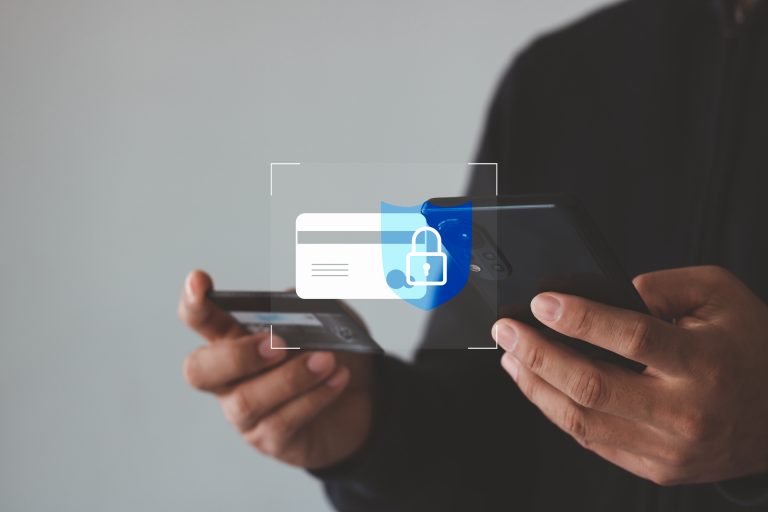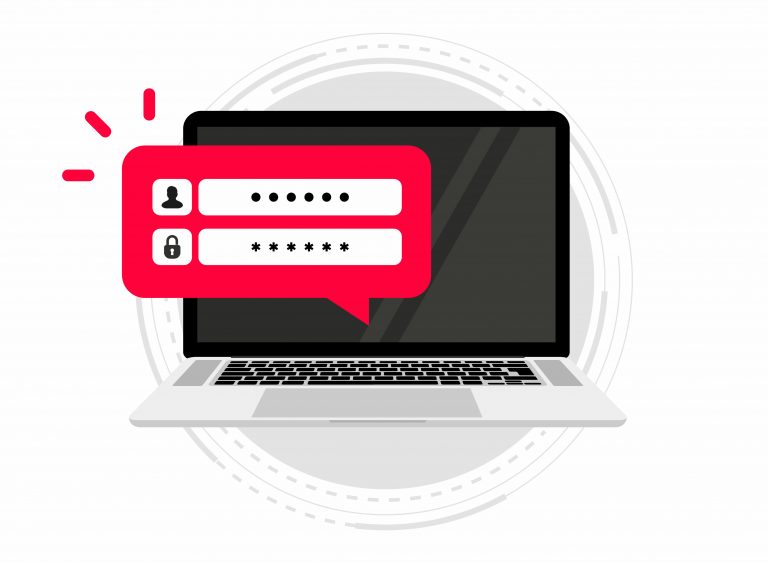Biometric Identification in Banking: The Future of Secure Transactions
January 30, 2024In an age where digital security is of utmost importance, biometric identification has emerged as a pioneering technology in the…

If you’ve ever wondered, “how can I make myself disappear from the internet?”, you’ve come to the right place. Learn about personal data removal with our guide.
Think about how many social network accounts each of us is on today — every day. You may have a Twitter, Facebook, Instagram, YouTube, Snapchat, TikTok, and LinkedIn account, just to name some of the major social media accounts. You may have also participated in forum accounts and other sites.
More than half of the world’s population uses social media. That’s a whopping 4.62 billion people!
Within this online universe of all your accounts lies a plethora of personal data that can be misused and abused.
All one has to do is to go online and, using one of the search engines, find personal info and data about an individual. Google online search results will provide access to phone numbers, a primary email address, names of family members, Facebook information, Twitter account info along with posts, and other information that you may not want accessible to just anyone, like a business partner, customer or employer.
For example, potential employers will Google your name or use background check websites to find out more about you and may end up surprised to see the nature of some of your posts, pictures, and comments. Even horribly embarrassing things from the past (when you were younger and daring) may show up. You may have not considered that the content you posted at the time could be a potential minefield, but now unwanted search results are coming up and causing you issues.
In addition, your personal information can be used to harass or bully you and for identity theft including data breaches and financial fraud.
You’re done and want off the Internet forever. But how do you disappear from the Internet and online searches?
It takes work to disappear from the Internet but it can be done, especially if you’re not famous and an average person. (For someone famous or high-profile, it’s essentially impossible to be completely anonymous online.)
First, permanently delete your accounts — all of your social media accounts and anywhere you’ve used your real name. If you only want to remove search results, set your profiles to private. This isn’t an ideal solution, but it will at least remove the results from the search engines if you still want to keep your social networks.
Here’s how to delete your accounts on some of the major social networks:
Facebook: To delete your Facebook profile, visit the account settings at this link while you’re logged in. Click on “Delete My Account” button. It may take up to about 14 days before your profile is removed. Note that some messages may still show up, yet anything in which you have been tagged will have your name removed (although the pictures themselves will remain). If you want pictures removed completely, contact your friend or family directly who posted the images to remove photos you are tagged in.
Instagram: Go to the “Delete Your Account” page while you’re logged in. Choose “Why are you deleting your account?” and re-enter your password and then click “delete.”
Twitter: Go to your account settings page, and click “Deactivate my account” at the bottom of the page. Your account gets deleted completely, but it will take a few weeks before results stop showing up in searches.
LinkedIn: Go to your settings page, under Account Management, click on the “close your account” link.
After you delete your social media accounts, content may still be on the web that you need to delete. Photos, articles, or even employer websites could have information on you. First determine where you appear in search results online. Search for your name on Google and jot down everywhere your name shows up.
To remove unwanted online content and personal info, contact the webmaster hosting the content and ask that it be removed.
Send former employers an email to remove your name and info if you are still showing up on their About Us pages with your photo, email address link, and bio. Ask family members who post pictures of you on their personal blogs to remove them.
If donation pages you’ve supported in the past list your name, ask them to politely remove it. This all may take time, but eventually your info will be removed from search results.
You can also contact the search engines directly, such as Google services, and request in written form that they remove your information. This is a long shot as the requested information you want removed has to fall within their legal terms. If someone is publishing libelous content/defamatory remarks about you, violating any type of copyright, or displaying confidential information about you on a page, you have a better chance of getting the info removed.
If you can’t get everything off Google search results, consider burying personal information as far as possible. You can create profiles on popular social sites like Twitter, Instagram, and Facebook with just your name.
Or, you can set up your own website or landing pages using a whole bunch of keywords that relate to your name but with no actual information (or simply create a 404 error page). This isn’t as effective as removing all content, but you can thwart amateur Internet sleuths who will be directed to a blank page with no information on you.
In your quest to disappear from the Internet forever, you also want to ensure that any information that is in the public record be removed. Anyone can still conduct a background check and find information about you on various databases. This includes your personal name, current address, date of birth, marital status, etc.
Confidential information such as your Social Security Number and bank account information may also be on certain sites. Request the site that lists confidential information to remove it. If they don’t, send a legal request to Google.
You’re probably registered on many different accounts — from Amazon to multiple other online stores and sites like Slack and Asana, Dropbox, Google Docs as well as PayPal and Venmo, perhaps a dating site or two, and dozens of other accounts. Visit JustDelete.Me, which includes direct links to pages of more than 300 services to see how easy it is to delete your site data completely from each account. With Amazon, for example, go to “close account” and click on it.
Yes, you read that right! You can only try and leave the Internet forever if you don’t have an email presence. Although it’s how we communicate today, particularly for work, emails create a large digital footprint. If you choose to delete your email, be sure to create a backup of any information you want to keep. You can do this by going to the settings menu in Google to export data.
If not having email is too drastic a step and completely unrealistic, consider creating a temporary email address to communicate via a Google account name. Or, set up a fake email address to sign up for certain services. You can also choose to set up a fake identity using Gmail to be able to use the Internet.
In addition, don’t use the same username as your email and try to come up with different names for each site you use.
If you don’t want to stop using email, then unsubscribe from the companies and brands that send you emails. This is a time-consuming process, especially when you are manually unsubscribing, but it’s a way of preventing your inbox from getting bombarded and all sorts of websites handling your data.
You’ve deleted your social accounts and made getting one’s hands on your personal data a bit harder, what else can you do? While you can’t be completely anonymous, you can gain greater privacy with a VPN for browsing anonymously. A VPN enables you to hide your IP address and your browsing history so that your Internet Service Provider (ISP) will not be able to detect your online activity. You can set this up fairly easily and quickly.
You may also consider using Google Voice protect to keep your cell phone records private with a made-up Google account.
Don’t just simply accept an app’s terms and conditions. Review what you’re agreeing to. For example, does the app always need to know where you are, or can you turn off this feature? Most apps request as many permissions as possible, so it’s up to you to manage them.
Prior to using a website or app, find out what information it collects, shares, and/or sells. Many businesses sell their customers’ personal information to third parties for marketing and advertising purposes, which is not only detrimental to privacy but also to your anonymity.
Your online identity is important to you. For most of us, there is a balance between protecting our personal info from a good Internet sleuth looking to do you harm and enjoying all the benefits and rewards we get with our online accounts and digital access. It’s important to really think about whether you are ready to leave the Internet forever and deleting content completely or taking extra measures to protect your identity.
If it’s negative content on the Internet you want removed and to suppress personal information, an online reputational management (ORM) company can help you with this. An ORM can perform an audit of your online presence to check what new information if any has made it onto various websites and search indexes and to ensure your data stays locked down. The last thing you want is Internet sleuths either using personal data to create issues for you or to post negative content online that can be damaging to your career and personal life.
You can continue to have an online presence but one that is positive and boosts your reputation without compromising your identity.
To learn more about how you can protect your internet privacy and remove personal information from the web, contact RemovePersonalInformation today by dialing 844-445-6096 .

In an age where digital security is of utmost importance, biometric identification has emerged as a pioneering technology in the…

Telemedicine has become an increasingly popular option for accessing healthcare services, allowing patients to consult with healthcare providers remotely. What…

In a world where cyber threats are becoming increasingly sophisticated, the importance of having strong passwords cannot be overstated. But…